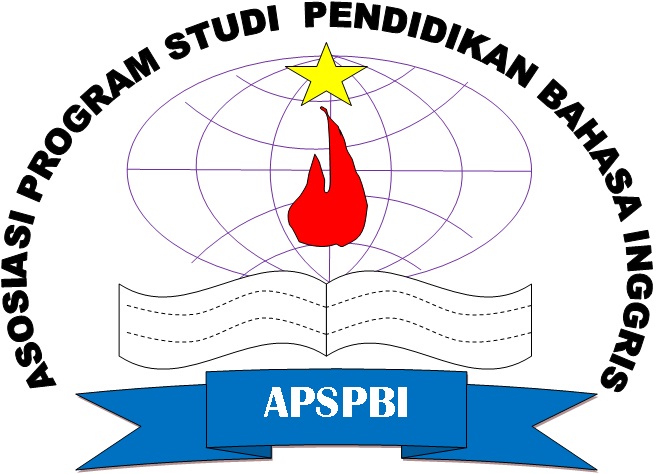Formative assessment in distance learning: narratives of Indonesian senior secondary school EFL teachers
DOI:
https://doi.org/10.28918/erudita.v2i1.5329Keywords:
Distance learning, English language proficiency, Formative assessment, Language assessment, Senior secondary schoolAbstract
Assessment is a pivotal endeavor where the teacher can provide feedback, evaluation and solutions on students’ learning so that the teacher can find out the level of students’ understanding of the lesson that has been taught and see the abilities and difficulties faced by the students to determine what students need. Based on the current situation, the COVID-19 pandemic has led to changes in the learning system from offline learning to distance learning with online mode. In response to this, teachers and students need to adapt to the online mode of teaching and learning process. To fill this gap, the current study aims to explore the way of English teachers in conducting formative assessments related to students’ proficiency during distance learning. Designed in narrative research, data are garnered through semi-structured interviews with three Indonesian English teachers of senior secondary school. The interview seeks to explore the methods or strategies of English teachers towards online formative assessment during distance learning. The results of this study indicate that formative assessment during distance learning is carried out online with one or more combinations of language skills.
References
Al-Hattami, A. A. (2020). E-assessment of students’ performance during the e-teaching and learning. International Journal of Advanced Science and Technology, 29(8s), 1537-1547. http://sersc.org/journals/index.php/IJAST/article/view/12566
Aldukhayel, D. (2021). Vlogs in L2 listening: EFL learners’ and teachers’ perceptions. Computer Assisted Language Learning, 34(8), 1085-1104. https://doi.org/10.1080/09588221.2019.1658608
Ali, F., & Sofa, E. M. (2018). Students’ perceptions of the implementation of blended learning in a large English class. Edulitics (Education, Literature, and Linguistics) Journal, 3(1), 15-28. http://www.e-jurnal.unisda.ac.id/index.php/edulitic/article/view/878
Alwasilah, C. (2013). Policy on foreign language education in Indonesia. International Journal of Education, 7(1), 1-19. https://doi.org/10.17509/ije.v7i1.5302
Ardiansyah, W., Ujihanti, M., & Aryanti, N. (2018). Formative assessment. Holistics Journal. 10(19), 19-27. https://jurnal.polsri.ac.id/index.php/holistic/article/view/973/746
Arif, Z. (2020). Online assessment implemented by English teachers at SMA Al-Islam 1 Surakarta during pandemic COVID-19 [Bachelor’s thesis, IAIN Surakarta]. IAIN Surakarta Repository. http://eprints.iain-surakarta.ac.id/id/eprint/138
Arifiyanto, S., & Ali, F. (2019). Mediating student teachers through Edmodo in an extensive listening class. Journal of English Teaching and Learning Issues, 2(2), 143-158. http://dx.doi.org/10.21043/jetli.v2i2.5723
Arrafii, M. A. (2021). Assessment reform in Indonesia: Contextual barriers and opportunities for implementation. Asia Pacific Journal of Education, 41(2), 1-16. https://doi.org/10.1080/02188791.2021.1898931
Asrifan, A. (2015). The use of pictures story in improving students’ ability to write narrative composition. International Journal of Language and Linguistics, 3(4), 244-251. https://doi.org/10.11648/j.ijll.20150304.18
Barkhuizen, G. (2014). Narrative research in language teaching and learning. Language Teaching, 47(4), 450-466. https://doi.org/10.1017/S0261444814000172
Becker, A., & Nekrasova-Beker, T. (2018). Investigating the effect of different selected-response item formats for reading comprehension. Educational Assessment, 23(4), 296-317, https://doi.org/10.1080/10627197.2018.1517023
Bolderston, A. (2012). Conducting a research interview. Journal of Medical Imaging and Radiation Sciences, 43(1), 66–76. https://doi.org/10.1016/j.jmir.2011.12.002
Braun, V., & Clarke, V. (2006) Using thematic analysis in psychology. Qualitative Research in Psychology, 3(2). 77-101. https://doi.org/10.1191/1478088706qp063oa
Brown, J. D., & Hudson, T. (1998). The alternatives in language assessment. TESOL Quarterly, 32(4), 653-675. https://doi.org/10.2307/3587999
Chan, J. Y. H. (2022). The evolution of assessment in English pronunciation: The case of Hong Kong (1978-2018). Language Assessment Quarterly, 19(1), 1-26. https://doi.org/10.1080/15434303.2021.1935960
Clandinin, D. J. (2006). Narrative inquiry: A methodology for studying lived experience. Research Studies in Music Education, 27, 44-54. https://doi.org/10.1177%2F1321103X060270010301
Connelly, F. M., & Clandinin, D. J. (1990). Stories of experience and narrative inquiry. Educational Researcher, 19(5), 2–14. https://doi.org/10.3102/0013189X019005002
Connors, C. B. (2021). Summative and formative assessment: An educational polarity. Kappa Delta Pi Record, 57(2), 70-74. https://doi.org/10.1080/00228958.2021.1890441
Conrad, D., & Witthaus, G. (2021). Reimagining and reexamining assessment in online learning. Distance Education, 42(2), 179-183. https://doi.org/10.1080/01587919.2021.1915117
Dixson, D. D., & Worrell, F. C. (2016). Formative and summative assessment in the classroom. Theory Into Practice, 55(2), 153-159. https://doi.org/10.1080/00405841.2016.1148989
Efendi, Z. (2017). Improving students’ ability in writing English teaching by using portfolio assessment (An experimental study at SMKN 1 Blangpidie). Getsempena English Education Journal (GEEJ), 4(2), 152-163. https://doi.org/10.46244/geej.v4i2.748
Escobar, P. S., & Morrison, A. (2020). Online teaching placement during the COVID-19 pandemic in Chile: Challenges and opportunities. European Journal of Teacher Education, 43(4) 587-607. https://doi.org/10.1080/02619768.2020.1820981
Ferdiansyah, S. (2018). Collaborative narrative writing: A digital photography task in an Indonesian Islamic secondary school. Indonesian Journal of Applied Linguistics, 8(2), 303-315. https://doi.org/10.17509/ijal.v8i2.13277
Grob, R., Homieier, M., & Labudde, P. (2021). Analysing formal formative assessment activities in the context of inquiry at primary and upper secondary school in Switzerland. International Journal of Science Education, 43(3): 407-427. https://doi.org/10.1080/09500693.2019.1663453
Gultom, E. (2016). Assessment and evaluation in EFL teaching and learning. Proceedings of the Fourth International Seminar on English Language and Teaching (ISELT-4) (pp. 190-198). http://ejournal.unp.ac.id/index.php/selt/article/view/6928
Heigham, J., & Croker, R. A. (2009). Qualitative research in applied linguistics: A practical introduction. Palgrave MacMillan. https://doi.org/10.1057/9780230239517_1
Jian, H., & Luo, S. (2014). Formative assessment in L2 classroom in China: The current situation, predicament and future. Indonesian Journal of Applied Linguistics, 3(2), 18-34. https://doi.org/10.17509/ijal.v3i2.266
Khanafiyah, R., Akbar, R. A., & Puspitasari, D. (2021). Student's self-confidence in practicing speaking during online learning: up or down? Erudita: Journal of English Language Teaching, 1(1), 39-53. https://doi.org/10.28918/erudita.v1i1.4312
Kidd, W., & Murray, J. (2020). The COVID-19 pandemic and its effects on teacher education in England: How teacher educators moved practicum learning online. European Journal of Teacher Education, 43(4), 542–558. https://doi.org/10.1080/02619768.2020.1820480
Koizumi, R. (2022). L2 speaking assessment in secondary school classroom in Japan. Language Assessment Quarterly, 19(2), 142-161. https://doi.org/10.1080/15434303.2021.2023542
Krishnan, J., Black, R. W., Olson, C. B. (2020). The power of context: Exploring teachers’ formative assessment for online collaborative writing. Reading & Writing Quarterly, 37(3), 201-220. https://doi.org/10.1080/10573569.2020.1764888
Liong, Y., Kwan, P., Melor, A., & Yunus, M. (2019). The use of pictures in improving students’ writing. Modern Journal of Language Teaching Methods (MJLTM), 9(4), 1-8. https://doi.org/10.26655/mjltm.2019.4.5
Lubicz-Nawrocka, T., & Bovill, C. (2021). Do students experience transformation through co-creating curriculum in higher education? Teaching in Higher Education, 1-17. https://doi.org/10.1080/13562517.2021.1928060
McLoughlin, J. A., & Lewis, B. (1986). Assessing special student (2nd ed.). Merrill Publishing Company.
Meidasari, V. E. (2015). The assessment and evaluation in teaching English as a foreign language. Indonesian EFL Journal, 1(2), 224-231. http://dx.doi.org/10.25134/ieflj.v1i2.629
Mishra, P. (2019). Considering contextual knowledge: The TPACK diagram gets an upgrade. Journal of Digital Learning in Teacher Education, 35(2), 76-78. https://doi.org/10.1080/21532974.2019.1588611
Mishra, L., Gupta, T., & Shree, A. (2020). Online teaching-learning in higher education during lockdown period of COVID-19 pandemic. International Journal of Educational Research Open, 1, 1-8. https://doi.org/10.1016/j.ijedro.2020.100012
Mudra, H. (2018). Pre-service EFL teachers’ experiences in teaching practicum in rural schools in Indonesia. The Qualitative Report, 23(2), 319-344. https://doi.org/10.46743/2160-3715/2018.3115
Nurazizah, H., Friatin, L. Y., & Sugiarto, B. R. (2019). WhatsApp voice note in speaking class. Journal of English Education and Teaching, 3(3), 343–360. https://doi.org/10.33369/jeet.3.3.343-360
Oellermann, S. W., & der Merwe, A. V. (2015). Can using online formative assessment boost the academic performance of business students? An empirical study. International Journal of Educational Sciences, 8(3), 535-546. https://doi.org/10.1080/09751122.2015.11890275
Rahardjo, D., Sumardjo, Lubis, D. P., & Harijati, S. (2016). Internet access and usage in improving students’ self-directed learning in Indonesia open university. Turkish Online Journal of Distance Education, 17(2), 30–41. https://doi.org/10.17718/tojde.90196
Rahayu, R. P., & Wirza, Y. (2020). Teachers’ perception of online learning during pandemic COVID-19. Jurnal Penelitian Pendidikan, 20(3), 392–406. https://doi.org/10.17509/jpp.v20i3.29226
Sari, S. N. W., & Wardani, N. A. K. (2018). An analysis of Indonesia’s 2013 EFL curriculum and Turkey’s national English language curriculum for secondary schools. IJELTAL (Indonesian Journal of English Language Teaching and Applied Linguistics), 3(1), 23-37. https://doi.org/10.21093/ijeltal.v3i1.113
Schauber, S. K., Hautz, S. C., Kammer, J. E., Stroben, F., & Hautz, W. E. (2021). Do different response formats affect how test takers approach a clinical reasoning task? An experimental study on antecedents of diagnostic accuracy using a constructed response and a selected response format. Advances in Health Sciences Education, 26, 1339–1354. https://doi.org/10.1007/s10459-021-10052-z
Zalat, M. M., Hamed, M. S., & Bolbol, S. A. (2021). The experiences, challenges, and acceptance of e-learning as a tool for teaching during the COVID-19 pandemic among university medical staff. Plos One, 16(2), 1–12. https://doi.org/10.1371/journal.pone.0248758
Zuhriyah, M. (2017). Storytelling to improve students’ speaking skill. English Education: Jurnal Tadris Bahasa Inggris, 10(1), 119–134. https://doi.org/10.24042/ee-jtbi.v10i1.879
Downloads
Published
How to Cite
Issue
Section
License
Copyright (c) 2022 Yulianita Listya Dewi, Mutammam

This work is licensed under a Creative Commons Attribution-ShareAlike 4.0 International License.















